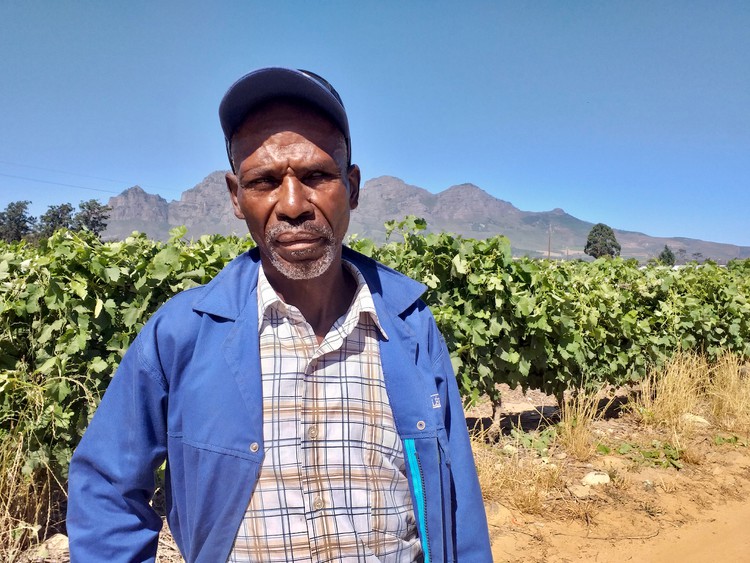Farm worker’s housing case in court this week
Drakenstein municipality accused of breaching its Constitutional obligations
Eric Lolo is taking Drakenstein Municipality and the provincial department of Human Settlements to court. He says they have failed to meet their Constitutional obligation by not providing adequate emergency housing to families facing eviction. Archive photo: Barbara Maregele
The case against Drakenstein Municipality’s “failure to meet its constitutional obligation by not providing adequate emergency housing” to families facing eviction will be argued in court this week.
Lawyers for farm worker Eric Lolo will argue that the municipality “breached its constitutional and statutory obligations by failing to take reasonable measures to provide emergency housing for people living within its area of jurisdiction”.
The other respondents in the case are the provincial MEC for Human Settlements, the Minister for Human Settlements, and Greenwillows Properties - the farm owners.
GroundUp reported that in 2015, Lolo was served with an eviction order from Greenwillows Properties, which owns Langkloof Roses farm in Wellington, where Lolo was staying with his daughter Berenice Fransman and her child.
Lolo is acting as a representative of many farm dwellers in the region who have had similar experiences. In the court application the lawyers note that evictions in the area have reached “crisis proportions” and that there is “a dire shortage of emergency housing for evictees”.
According to attorney Johan van der Merwe, who is acting on behalf of Lolo, the municipality has not provided adequate housing solutions to farm dwellers in the region.
“[The court case] is about improving those minimum standards and taking the municipality to task for not really progressing beyond those minimum standards,” said van der Merwe. “There should be more and quicker access to low-income housing, and the informal settlements need to be improved.”
Seraj Johaar, the municipality’s executive director of Corporate Services said there was not enough support and funding from the national government. “It is difficult for us to keep up with the need without the proper support. We fully understand our obligation in respect of emergency housing.
“We are challenged to provide brick-and-mortar housing, but we provide emergency housing to the best of our ability,” said Johaar.
“A favourable outcome is for [the municipality] and Mr Lolo to settle the dust, so that he can continue his life in a better structure than he is currently living in,” said Johaar.
Carmen Louw of Women on Farms Project who is an amicus curiae in the case said the case would also bring to light the municipality’s dependency on the provincial budget received for emergency housing.
“Drakenstein doesn’t have a specific plan for farm evictees,” said Louw.
She said there are farm dwellers “living in appalling conditions” in the emergency housing provided.
Support independent journalism
Donate using Payfast

Don't miss out on the latest news
We respect your privacy, and promise we won't spam you.
Next: Campaigns failing to stop farm evictions, say civil society organisations
Previous: Constitutional Court orders transport department to insource employees
© 2020 GroundUp. This article is licensed under a Creative Commons Attribution-NoDerivatives 4.0 International License.
You may republish this article, so long as you credit the authors and GroundUp, and do not change the text. Please include a link back to the original article.

